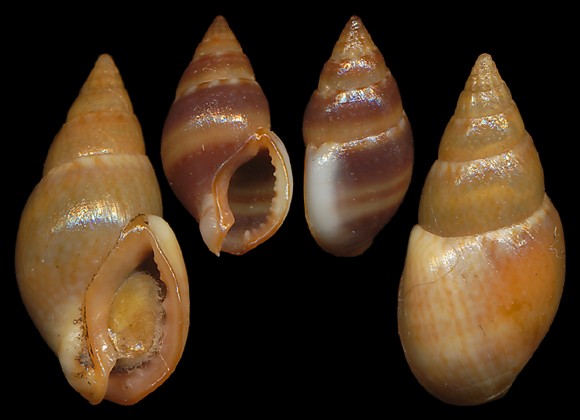
1-2m deep, in sand and rocks, Málaga, Andalucia, S. Spain.
11-16mm.
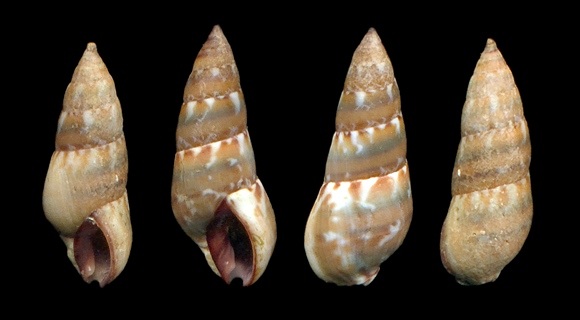
Synonyms: corniculata, discrepans, fasciolatum, mitrella, oblongum, olivacea, politum, trifasciata… In shallow water on rocks near sand pockets, southwestern cove of the islands, Isola Rossa, NW. Corsica. 15-16mm.
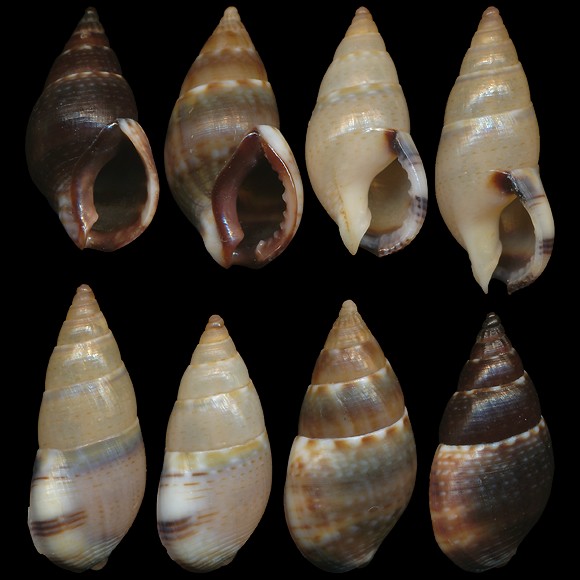
« Buccinum parvum, sulcatum laeve ex fusco dilute coloratum. Abita nei fondi fangosi, e probabilmente arenosi. » – G. Olivi: Zoologia adriatica, Bassano 1792. Above: contrasted examples of this very variable species. 25-45m deep, Alger bay, Wilaya of El Djazaïr, Algeria. 11-12,5mm.
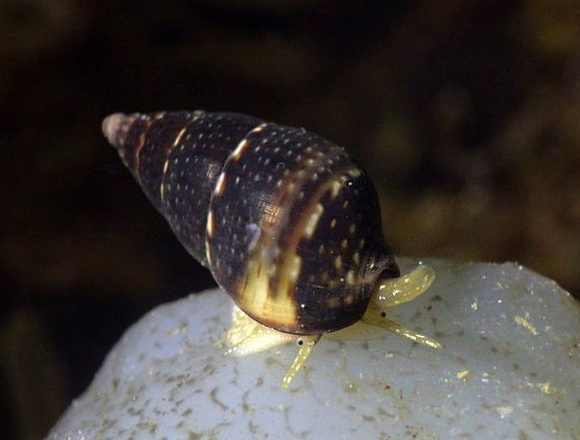
Near the lighthouse of the Canal du Rhône à Sète, Frontignan, northeastern shore of Thau Lagoon, Sète, Hérault, Occitania, S. France. Original picture provided by P. Girard for iNaturalist.
– (CC BY) –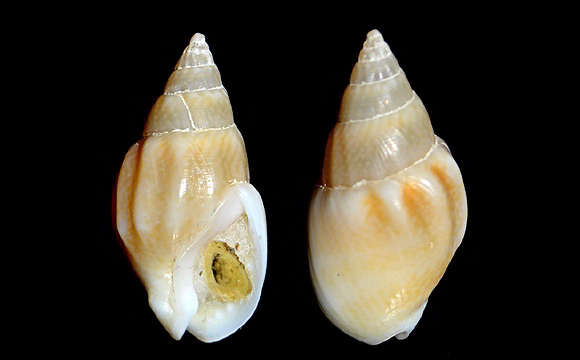
Original pictures provided by J. M. Martin (ES).
– (CC BY-NC-SA) –
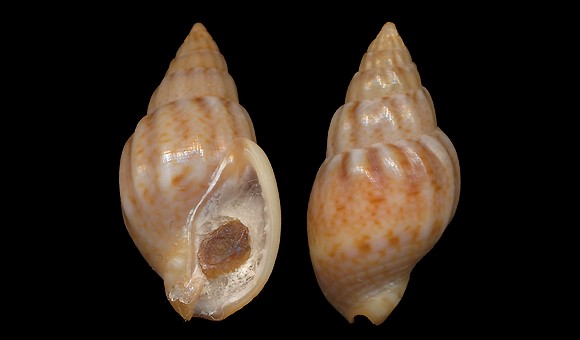
At low tide, on sand, Faro, Rio Formosa, Algarve. 15mm.
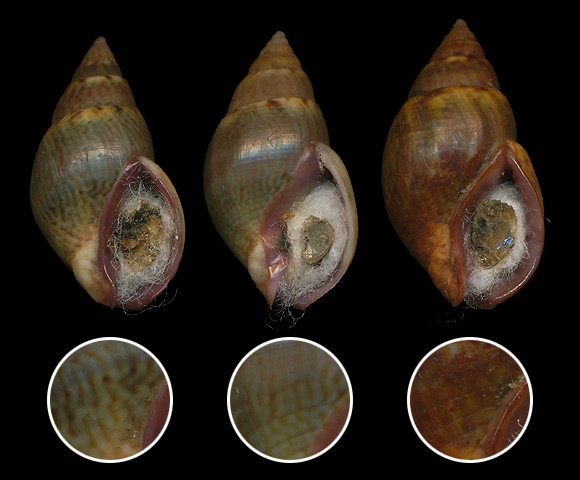
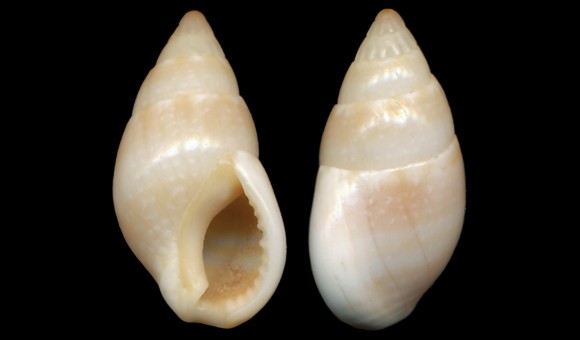
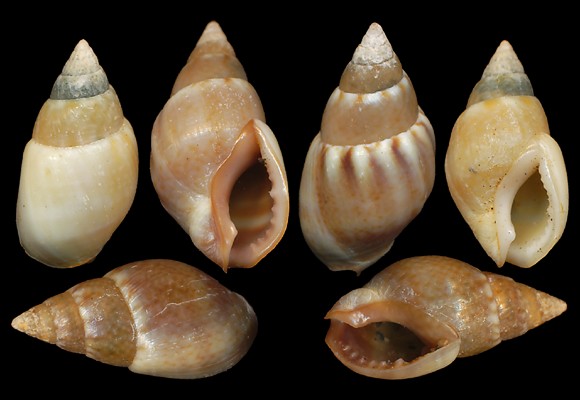
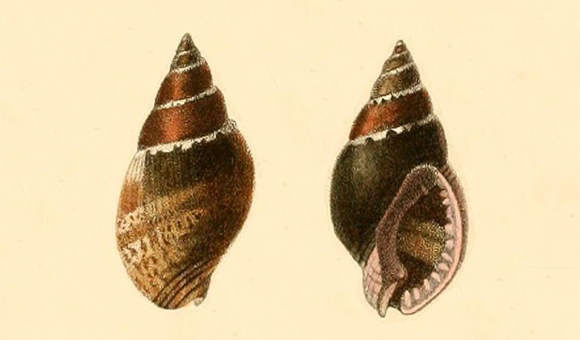
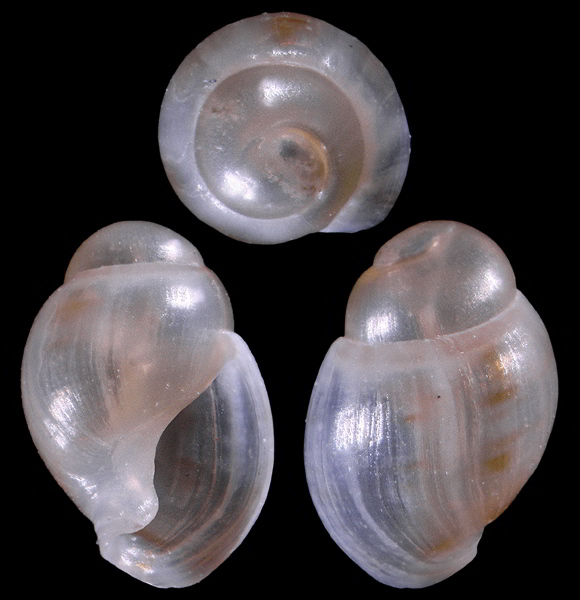
Port-la-Nouvelle, Aude, Occitania, S. France. 1,5mm.